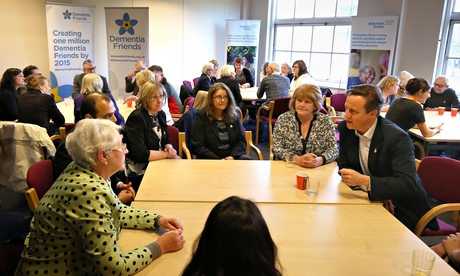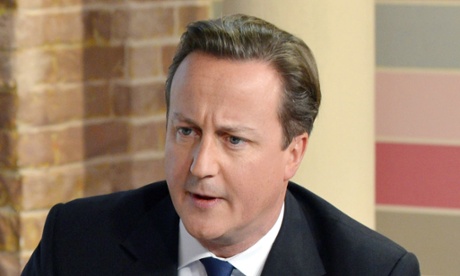Last week, my father received a call from the care home that looks after my mother. Due to cuts, incontinence pads were now being rationed by the local GP surgery. We would have to start paying for extra pads for my mother, who has severe dementia. We had previously fought a long battle with the district nurse to enable Mum to be provided with incontinence pads, and now it appeared that we might as well not have bothered.
This new measure came as no surprise; after five years of dealing with dementia, our family is only too aware that if your loved one is unlucky enough to have the disease – as opposed to, say, cancer – the NHS is of limited help. Unless you have almost no money of your own you will be solely responsible for paying for all your needs.
A new report by the Alzheimer’s Society on the cost of dementia estimates that almost £6bn a year is spent on privately funded care in the UK. In addition, family members provide unpaid care worth a further £11.6bn a year. Overall, people with dementia and their families are picking up two-thirds of the costs of the disease, more than £17bn a year. This is a staggering sum, which the Alzheimer’s Society has described as a “dementia tax”.
In response to the report, the health secretary, Jeremy Hunt, has claimed that the government is “transforming the way people pay for care, capping the amount they have to pay and providing more financial help”. He was referring to the proposed implementation in 2017 of the recommendations of the Dilnot report into the funding of social care. These plans sound great: there will be a lifetime cap on care costs of £72,000. However, this will not be backdated, so even if you have spent well over £72,000 on your care when the new cap comes in, you will be back to zero.
In addition, the cap does not include the so-called “hotel costs” of living in a care home, which will be charged separately and have been set at £12,000 a year. I don’t know how many hotels Hunt has stayed in, but my guess is that most will have been a little more salubrious than the average care home. This is simply a further tax on those with dementia. Were my mother able to live at home, she would not be spending anything like £12,000 a year simply to feed and house herself, but because she’s in a care home that’s what she’ll have to pay.
In reality, the new system is likely to benefit only a few. A study by the Institute and Faculty of Actuaries found that only 8% of men and 15% of women entering care at the age of 85 would benefit. One of the authors of the report stated that “anyone who is expecting that the cap will pay for care is in for a shock”.
My mother is better off than many of her generation and some would say it is only fair that she pays her way at a time of austerity. But if she had smoked all her life and now had lung cancer, all her care would be paid for. This would also be the case if she had been grossly overweight and was now suffering from heart disease or type 2 diabetes. She could have driven recklessly, crashed and spent months in hospital without having to pay a penny.
She did none of these things – she was a slim, fit, vegetarian, non-smoker – yet has to pay for all her care because she was unlucky enough to develop a condition that is arbitrarily classified as a social rather than medical problem.
This is not to say that people who could be considered liable for their condition in some way should be made to pay. If we have an NHS that is free at the point of use, it should be free for everyone; there is no room for moral judgment. Rather, it is an argument against the randomness of a system that will pick up all the costs for one disease, but none for another.
Currently, my mother is paying £36,000 a year for care. This will continue until almost all her savings are gone. At that point, although she will stop paying upfront, the local authority will put a charge on my parents’ house. When my father dies, they will collect on it. Mum worked as a teacher for most of her life, paid her taxes and probably troubled the NHS with some minor ailment less than once a decade. But when she finally needed it, it wasn’t willing to provide her with as much as a few incontinence pads. How can this be right?










